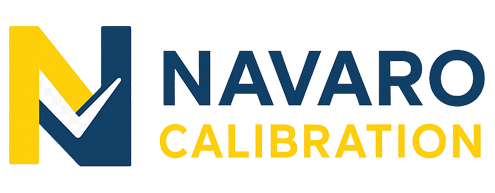No products in the cart.

In today’s highly competitive industrial environment, process automation is no longer optional—it is a necessity for ensuring consistent quality, efficiency, and cost savings. At the heart of every automation system lies the controller, a critical device that monitors inputs, executes programmed logic, and regulates outputs to keep processes stable and reliable.
Whether you are managing a chemical plant, food processing facility, or power generation system, selecting the right controller can mean the difference between seamless operations and costly downtime. This article provides an in-depth look at how to choose the right controller for process automation, highlighting key considerations, types of controllers, and recommended solutions for industrial applications.
Why the Choice of Controller Matters
Controllers serve as the “brain” of an automation system, ensuring processes run within desired parameters such as temperature, pressure, flow, or humidity. A poorly chosen controller can lead to:
Inconsistent product quality
Increased energy consumption
Frequent calibration issues
System inefficiencies and downtime
By contrast, the right controller helps ensure regulatory compliance, optimized resource usage, and long-term equipment reliability.
Types of Controllers in Process Automation
1. PID Controllers
The most widely used in industrial settings, PID controllers regulate processes by calculating error values and applying proportional, integral, and derivative corrections. They are ideal for temperature control, pressure regulation, and flow management.
👉 Explore our selection of Process Controllers designed for precise industrial applications.
2. PLC (Programmable Logic Controllers)
PLCs are highly versatile, capable of handling complex automation tasks across multiple inputs and outputs. They are widely used in manufacturing, packaging, and assembly lines.
3. SCADA & DCS Systems
For large, integrated operations such as power plants or oil refineries, Supervisory Control and Data Acquisition (SCADA) or Distributed Control Systems (DCS) provide centralized monitoring and advanced control across multiple processes.
4. Single-Loop and Multi-Loop Controllers
Single-loop controllers: Manage one process variable (ideal for smaller systems).
Multi-loop controllers: Handle multiple variables simultaneously (best for integrated process control).
👉 For precise temperature regulation, check the Yokogawa YHC5150X-01 Temperature Controller, a reliable choice for multi-application process control.
Key Considerations When Choosing a Process Controller
1. Accuracy and Stability
Choose controllers with high accuracy and stability, especially in industries like pharmaceuticals, chemicals, and food where regulatory compliance is critical.
2. Scalability and Integration
Consider whether the controller integrates easily with existing systems such as data loggers, sensors, and calibration instruments.
3. User Interface and Ease of Programming
Modern controllers should offer intuitive interfaces, clear displays, and flexible programming options for operators.
4. Environmental Conditions
Industrial environments can involve high temperatures, humidity, and vibration. Select controllers designed to withstand these conditions without drifting in performance.
5. Compliance and Calibration Support
For industries governed by strict standards (such as ISO, FDA, or GMP), ensure that your controller supports calibration and traceability.
Applications of Process Controllers
Temperature regulation in furnaces, ovens, and climate chambers.
Flow and pressure control in chemical plants and water treatment facilities.
Humidity and environmental monitoring in cleanrooms and laboratories.
Energy optimization in power generation and HVAC systems.
👉 See our Calibration Instruments that work seamlessly alongside controllers for complete process management.
Final Thoughts
Choosing the right controller for process automation requires a balance between accuracy, scalability, ease of use, and environmental suitability. Investing in the right solution not only improves process efficiency but also reduces costs and ensures compliance with international standards.
At Jansen Calibration, we provide a wide range of Process Controllers and automation solutions from trusted global brands. Whether you need a single-loop controller for a lab setup or an advanced PLC system for industrial automation, our catalog has the right option for your application.
